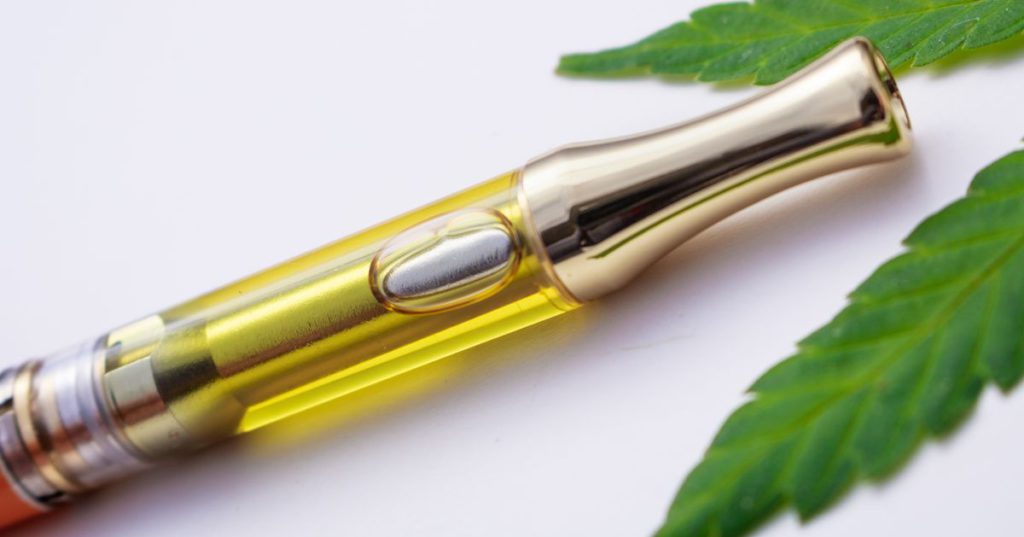
THC is delta-9-tetrahydrocannabinol. It’s a weed (cannabis) cannabinoid molecule that has long been known as the key psychoactive chemical that makes cannabis smokers feel extra confident. Tetrahydrocannabinol is among the 400 differing active ingredients — and 60 distinct cannabinoid particles in marijuana, but Tetrahydrocannabinol is best established. Cannabidiol is another essential cannabinoid molecule of great interest. This blog article will tell you everything you need to know about THC (Tetrahydrocannabinol) vape pens.
How THC Works?
THC (Tetrahydrocannabinol) functions by adding cannabinoid receptors to the body located in the brain and the nervous system. Tetrahydrocannabinol can be observed much longer in the body, approximately 20 hours after ingestion, than most other drug compounds, even though the psychoactive effects lasts for just a few hours. Tetrahydrocannabinol is also preserved for three to four weeks in body fat and organs. After even longer periods, hair follicle testing can identify Tetrahydrocannabinol, approximately ninety days. Testing urine is sometimes used but is an ineffective detection tool.
Different categories of THC (Tetrahydrocannabinol)
THC is also often consumed as marijuana (Cannabis plant dried leaves), but there are various ways to use THC. It can be ejected into the body through inhalation. It is the quickest way of delivering and the fastest psychoactive impact, allowing people to feel effects in minutes. THC can be inhaled in some different ways. It can be fumed or vaporized, but recent research shows that vaporization could present safety risks requiring more investigation.
Oral: THC may be ingested in capsules, foods, oils, or tinctures by mouth. Additionally, when the delivery method lasts longer, the effects tend to last longer.
Application Topical: The skin can be treated with THC in salves, balsams, oils, lotions, and bath salts. The impact of this application method is normally localized. It implies that psychoactive effects are unlikely. However, these products can help reduce inflammation and pain. Tetrahydrocannabinol may also be ejected as sprays, tablets, or solvable bands placed under the tongue.
Uses of THC (Tetrahydrocannabinol)
THC can also be used for recreational reasons but also many medical applications. For thousands of years, marijuana has been used for medical purposes, but recent research is still being done to alleviate and cure diseases. There are different ailments that Tetrahydrocannabinol can cure. It can treat anxiety, inflammation, insomnia, migraines, muscle spasticity, multiple sclerosis, seizures, pain, loss of appetite, and muscle spasticity.
The FDA also authorized a natural Tetrahydrocannabinol dronabinol and a medication containing a TCH-like synthetic chemical compound. Dronabinol can be used to control nausea and vomiting induced by low appetite or chemotherapy and HIV/AIDS losing weight. Nabilone is also used for nausea and vomiting treatment.
Impact
Tetrahydrocannabinol induces the release in the brain of a neurotransmitter known as dopamine that triggers euphoria sensations. Body effects can be different between different persons. People will feel it too: adjusted time perception, feelings of rest, enhanced appetite, and increased sensory awareness. At the same time, it has positive benefits, and Tetrahydrocannabinol could result in other effects. In some places, people may experience uneasiness, memory complications, delusions, and hallucinations.
Potential Pitfalls
There has been extensive research that Tetrahydrocannabinol, particularly among adolescents, is accompanied by an increased risk of psychosis. Also, it is associated with increased anxiety, remembering problems, and diminished brain development. On the contrary, CBD was found to mitigate these impacts; improve the ability to learn, and behave as an antipsychotic. However, a large proportion of the analysis is performed on animals. A research carried out showed that a form of studying that puts together the findings of several earlier studies has shown that high usage of THC can be neurotoxic. Brain development for those who routinely use marijuana without psychosis has variations.
One fascinating aspect that underlines brain changes is the evident compensatory reaction. The capacity of fibrous connectivity between extra neurons is subsequently increased, which may cancel some neurotoxicity. Several factors complicate research into the effects of THC; some suggest that it can be dangerous, especially if used regularly. Therefore, they should discourage regular marijuana use.
Tetrahydrocannabinol Addiction
After alcohol and tobacco, cannabis is the most common substance used in the United States and Canada. Although many believe that the drug is not addictive, THC tolerance and dependence have been widely documented in various studies. According to the NIDA, nearly 30% of people who use marijuana are addicted. Like other forms of addiction, marijuana use disease includes an apprehension about the drug, bingeing, or withdrawal signs if you cannot use the drug. THC can be used as a drug. Being a psychoactive element in cannabis, it causes euphoria hence cannot be consumed by the underage.
About LiT Vape Pens
LitVapePens.co is always working hard to meet our client’s demands. Our products and methods are all designed first and foremost for your body and mind. Order high quality THC & CBD Cannabis Vape Pens.
